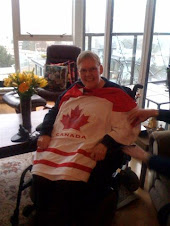Four kinds of MND
There are four main kinds of Motor Neurone Disease. Familial inheritance can play a role in a small number of cases.
Amyotrophic Lateral Sclerosis (ALS)
ALS is the most common form of MND resulting in around 75% of cases.
Involves both upper motor neureones from the brain and neurones from the brain stem, spine and lower motor neurones (upper motor neurones descend from the brain to the brain stem and the spinal cord; lower motor neurones extend from the brain stem and the spinal cord to the muscles).
Characterised by muscle weakness, spasticity, overactive or over responsive reflexes and inappropriate emotional responses.
Most cases are recorded in over 60’s.
Males vs Female cases are around 3:2.
Average survival two to five years.
Progressive Bulbar Palsy (PBP)
Affects approximately 25% of people with MND
Both upper and lower motor neurones may be involved.
Characterised by dysarthria (difficulty in articulating words) and dysphagia (difficulty in swallowing).
Lower motor neurone damage causing nasal speech, regurgitation of fluid via the nose, tongue atrophy (wasting away) and fasciculation (muscle twitching) and pharynx (tube between mouth and stomach) weakness. Upper motor neurone damage is characterised by a spastic tongue, explosive dysarthria and inappropriate emotional responses. Muscles in the upper limbs and shoulder girdle may also become progressively weaker.
PBP mostly occurs in older people, slightly more common in women.
Survival from onset of symptoms is usually between six months to three years.
Primary Lateral Sclerosis (PLS)
A rare form which affects the upper motor neurones only.
Characterised by spastic quadriparesis (spasms in all limbs), inappropriate emotions and spastic dysarthria.
Age of onset fifty years.
Average survival rate of twenty years.
Progressive Muscular Atrophy (PMA)
Affects approximately seven and a half per cent of people with MND.
Predominantly lower motor neurone degeneration.
Causes muscle wasting and weakness (often starting in the fine motor muscles of the hand) with loss of weight and fasciculation (muscle twitching).
Age of onset is usually under fifty years (male are more affected than females in the ratio of 5:1).
Majority of people surviving beyond five years.
Every case is individual. There is considerable overlap between these forms of MND. In particular, in time, people with PMA develop upper motor neurone involvement, and in both PMA and ALS most people eventually experience speech and swallowing difficulties in varying degrees.
All causes of Motor Neurone disease are not yet known but it is thought to be multi-factorial. Considerable research is being undertaken worldwide and encouraging advances are being made in understanding both the disease process and the way in which motor neurones function. Clinical trials have focused on treatments that might have a positive impact on the course of the disease by increasing life expectancy and/or slowing down the rate of progression of symptoms. It must be stressed that MND affects each individual very differently, in respect of symptoms in the initial stages, the rate of progression of the disease and survival time after diagnosis.
At present there is no cure for MND but much can be offered in the management of symptoms.
Please consult your doctor for advice specific to your individual situation.
Updated Tuesday 11 Jan 2011
From Go Pro

View from my living room
Subscribe to:
Post Comments (Atom)
































































































































































No comments:
Post a Comment